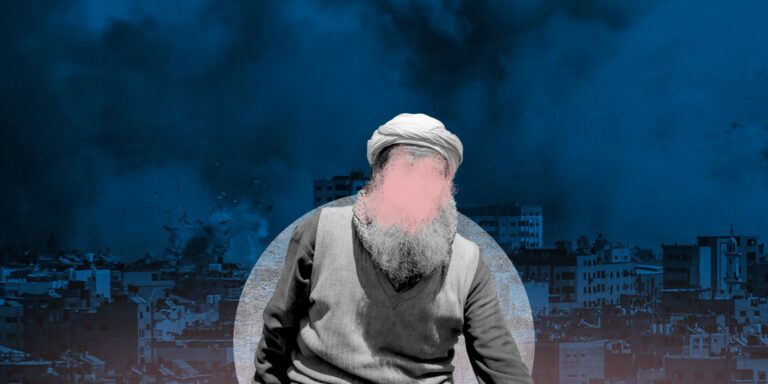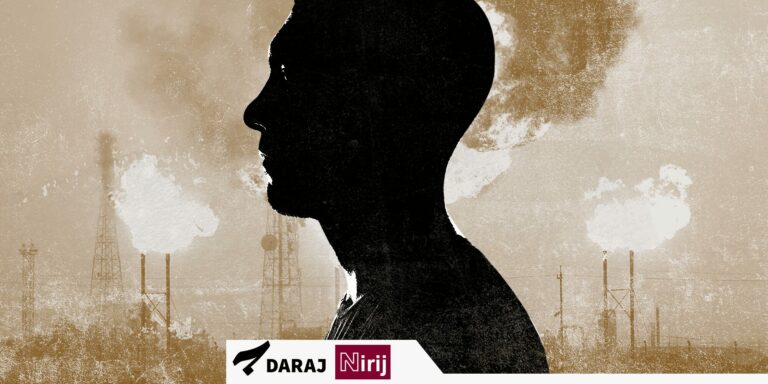On October 13, Israel brutally killed our colleague, photojournalist Issam Abdullah.
International and local bodies that investigated the crime acknowledged this fact, and the evidence they obtained from the crime scene, along with the deliberate criminal intent, were sufficient grounds for the Lebanese state to file a complaint against Israel with the International Criminal Court (ICC) in The Hague. The core purpose for which the ICC was established is to hold accountable those who commit atrocities against civilians, whether the perpetrator is a civilian, a soldier, a commander, an army, or a democratic state!
Following Issam’s murder, Israel killed other journalists, Farah Omar and Rabih Maamari, as well as civilians in the Israeli bombardment of the south.
The ICC usually does not intervene to investigate any atrocity unless the state under attack is either unwilling or unable to conduct the investigations itself. It appears that the Lebanese state is capable but unwilling.
Our state surprised us, as usual, by deciding to withdraw the case it had filed in this matter and to retract the mandate given to the Ministry of Foreign Affairs to submit a declaration to the ICC’s registrar, accepting its jurisdiction to investigate and prosecute Israel—not only for the killing of Issam Abdullah but for all crimes committed on Lebanese soil since October 7, without providing any explanation, once again as usual.
Earlier, the caretaker government had reviewed the report prepared by the Netherlands Organization for Applied Scientific Research (TNO) regarding Israel’s killing of Lebanese journalist Issam Abdullah from Reuters while he was performing his journalistic duties near the border town of Alma al-Shaab. Based on this, on April 26, the government tasked the Ministry of Foreign Affairs with filing a complaint with the ICC “pursuant to paragraph 3 of Article 12 of the Rome Statute, applicable in the court, with the Lebanese government committing to cooperate with the court according to Chapter 9 of the mentioned statute.”
The decision was issued after Minister of Information Ziad Makari proposed adopting the report conducted by the Dutch organization as a “clear and explicit document regarding the crime of the martyrdom of journalist Issam Abdullah and submitting it to both the Ministries of Justice and Foreign Affairs and Expatriates, tasking them to take necessary actions with the relevant international legal bodies to uphold truth and justice.”
Despite more than a month passing since this decision, Foreign Minister Abdallah Bou Habib has not submitted the required declaration, “since Lebanon is not a member of the ICC, it must submit an official declaration granting the court jurisdiction to initiate investigations within a specific time frame.” Instead of taking this step to expedite justice, the government issued a modified decision, announcing that Lebanon would file these complaints with the United Nations and other international bodies, excluding any role for the ICC.
Ironically, Lebanon’s retraction came just days after the ICC Prosecutor Karim Khan requested the issuance of arrest warrants against Israeli Prime Minister Benjamin Netanyahu and Defense Minister Yoav Gallant. This move debunks claims by Lebanese entities that international institutions, even those pursuing justice, are colonial entities that appease Israel and antagonize nations.
However, the crux of the matter lies not here but in the arrest warrants issued by the ICC against three Hamas leaders. The laws of armed conflict in the court apply to everyone without exception. This specific step has raised concerns among Lebanese entities, primarily Hezbollah, about submitting the case to the ICC.
The Lebanese militia mentality leads them to believe that if the ICC opens the door to Lebanon, the investigation might expand to include “rocket fire from Lebanon on border settlements,” potentially resulting in arrest warrants for party officials and fighters. If the court’s decisions extend further, it could also target Lebanese figures on international sanctions lists and revisit cases buried by the ruling system of parties, blocking investigations related to crimes, bombings, and assassinations.
Complying with the ICC’s investigation into the killing of Issam Abdullah could open the door for many Lebanese to file complaints against their state, especially since the Lebanese state protects itself through a law of evasion and obstruction of investigations into crimes committed on its land and against its people since the civil war. This law was not created out of thin air but was intentionally designed, approved, and enforced by the ruling parties, which previously fought each other and committed crimes and massacres during the 17-year civil war.
The ruling party system likely fears that, for example, the families of the Beirut port explosion victims might file a complaint or request an investigation with the ICC after the investigation was blocked by force of arms and political audacity. The circle could expand to include the families of the kidnapped during the civil war, with individuals or organizations claiming crimes committed on Lebanese soil during the civil war, such as the massacres of Damour, Safra, Karantina, Tel al-Zaatar, Sabra and Shatila, or in Syria by members Hezbollah, and the assassinations carried out by Lebanese parties in power and the Syrian regime against political leaders, journalists, and intellectuals over decades.
The Lebanese state should have seized this opportunity and fought to hold Israel accountable for committing crimes against civilians, but it succumbed to internal political pressures, procrastinated, and delayed until it ultimately retracted, killing all hope for justice for the victims.
This withdrawal can only be described as catering to the concerns of the ruling militia system, fearing legal prosecution, and indicating that the Lebanese state neither possesses the capability to conduct local investigations nor the willingness to endorse them internationally.
With this step, Issam and all the victims who fell unjustly and aggressively during this period have lost the opportunity for justice, for holding their killers accountable, naming them, tracking them, cornering them, pointing the finger at them, or even disturbing their peace, even if only morally.
Lebanon, governed by a group evading justice, accustomed to opposing the truth, avoiding responsibility, and halting investigations into all crimes committed on its soil from the beginning of the civil war to the present day, cannot be expected to comply with an international investigation into the killing of a young journalist.
And all that remains for us, as friends of Issam, as fellow journalists, as individuals, and as public opinion, is to mobilize to pressure the Lebanese government, the foreign minister, and the Lebanese ambassador in the Netherlands to reverse the amended decision and proceed with submitting the complaint to the ICC. It is disgraceful and revolting that Lebanon would squander such an opportunity.






